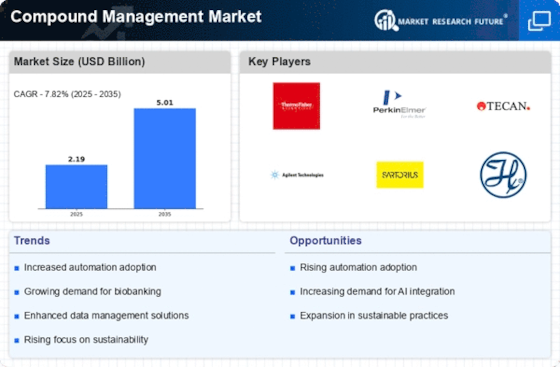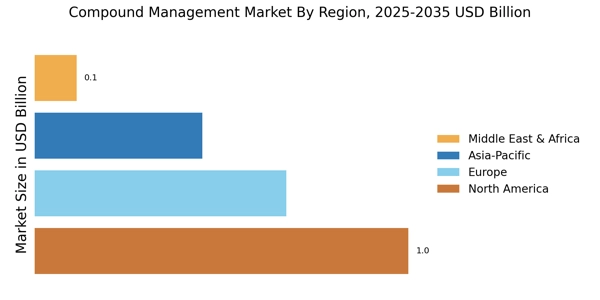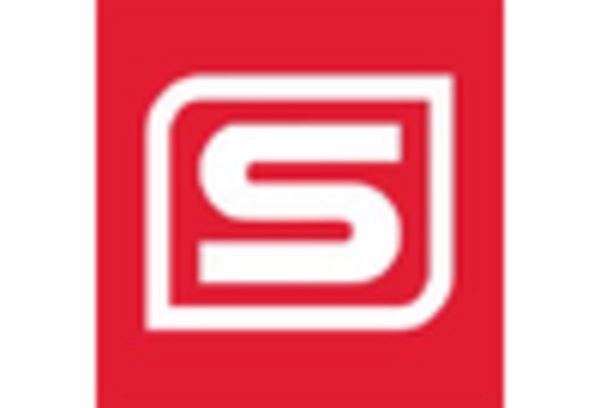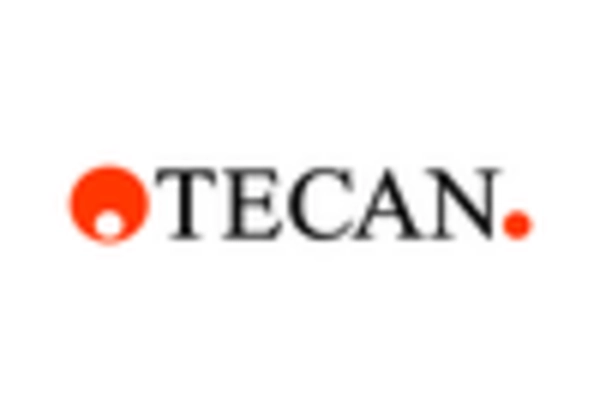The Compound Management Market is characterized by a dynamic and competitive landscape driven by the increasing demand for drug discovery and development across the biotechnology and pharmaceutical sectors.
Strategic compound library management focuses on maintaining a high degree of chemical diversity, which increases the probability of discovering novel "hits" for complex biological targets. Trends in fragment-based drug discovery emphasize starting with a smaller compound size, allowing for a more controlled and systematic expansion into potent, high-affinity therapeutic agents.
In this market, organizations seek to optimize compound management processes, enhancing efficiency in small molecule synthesis and screening. This involves utilizing advanced technologies, automation, and data management solutions to improve research outcomes. Competition within this market is defined by various factors, including innovation in compound storage, handling practices, and the capacity to deliver tailored services that cater to the unique needs of clients.
Companies are striving to establish a market presence through strategic partnerships, collaborations, and investments in research and development, enabling them to offer comprehensive compound management services that encompass everything from hit identification to preclinical testing.
Bioduro stands out in the Compound Management Market due to its robust capabilities and commitment to providing comprehensive services. The company has established a strong presence through its focus on delivering high-quality compound management solutions that streamline research processes for clients. Bioduro emphasizes its strengths in state-of-the-art technology, which supports efficient compound storage, retrieval, and characterization. Moreover, its highly skilled workforce is adept at implementing innovative strategies to optimize compound libraries, thus enhancing the overall productivity of drug discovery projects.
Bioduro’s ability to tailor its services to meet the specific needs of its clients ensures that it remains a key player in the market, attracting partnerships and business from leading pharmaceutical and biotech firms. Daiichi Sankyo has developed a significant reputation in the Compound Management Market as a company known for its advanced research and development capabilities.
Its commitment to innovation is evident in the sophisticated compound management solutions it offers, which are designed to support the diverse needs of drug development projects. Daiichi Sankyo leverages its extensive experience in compound logistics and data analytics to ensure the seamless integration of compound management within the broader context of pharmaceutical development. The company's strengths lie in its ability to maintain high standards of precision and reliability in managing compound libraries, which is essential for speeding up the drug Discovery Services process.
Additionally, Daiichi Sankyo's strategic collaborations and investments within the market serve to enhance its competitive advantage, positioning it as a leader in delivering valuable compound management services to its partners across the industry.

















